#Flood Mythology
Text
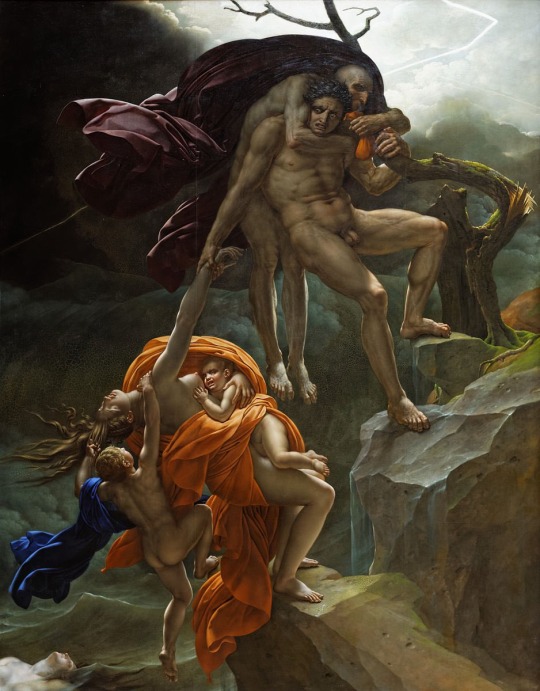
Scene of the Flood by Anne-Louis Girodet de Roucy-Trioson, c. 1806
86 notes
·
View notes
Text

The Deluge, Paul Merwart, c. 1900
#classical art#academicism#academic art#painting#oil painting#classical painting#mythology#biblical mythology#the flood#the deluge#paul merwart#polish painter#french painters#искусство#живопись#luv вдохновляемся
892 notes
·
View notes
Text
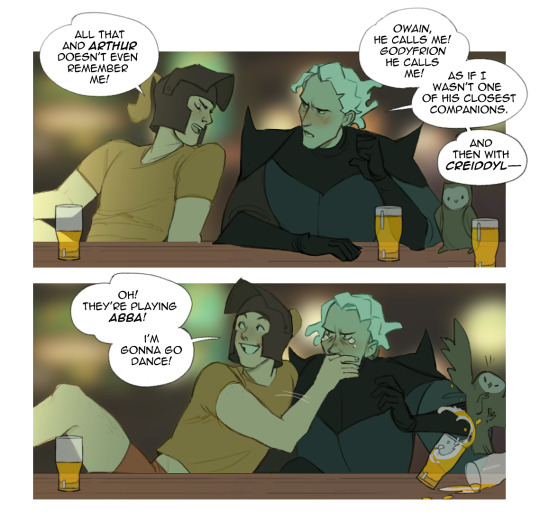
group therapy (they make each other worse)
#gwyn ap nudd#edern ap nudd#blodeuwedd#arthuriana#mabinogion#pa gur#medieval literature#welsh mythology#artists on tumblr#digital art#alcohol cw#art tag#------------------------------------------------------------#just as i don't think owain ap nudd exists i think gwyn godyfrion is gwyn ap gudd 😌#ok hear me out though#there are lots of gwyns in medieval welsh literature and i don't think they're all gwyn ap nudd (sadly)#but my man gwyn godyfrion. look. “dyfr” means water. like in the word dyfriog (watery). and gwyn ap nudd is very much associated with water#rides the watery horse du y moroedd. has a little chat with gwyddno garanhir who's the ruler of a kingdom that gets flooded.#dormach's funny flipper legs. rival gwythyr is associated with fire.#and there's the idea that annwn (of which gwyn ap nudd is the ruler) is itself underwater. and so on and so forth#sims-williams (‘the early welsh arthurian poems’ in arthur of the welsh. 1991) suggests godyfrion as a place name. underwater maybe.#so if gwyn godyfrion is “gwyn from under the water” i don't think it's unreasonable to suggest he's in some way connected to gwyn ap nudd#“but dizzy!! gwyn godyfrion is mentioned alongside gwyn ap nudd in culhwch and olwen!” the answer is that i simply choose to ignore that#while we're on the topic. the ddylad in creiddylad = flood#ok class dismissed#anyway gwyn and creiddylad i am pleased to tell you that my irl name means “sea” 😌 i am one of you
70 notes
·
View notes
Text
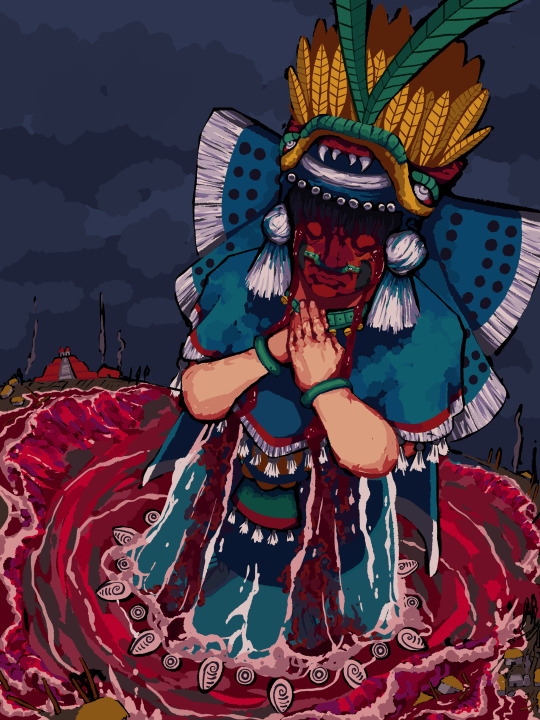
Last piece of aztec mythology art ive made so far. More to come in the future most likely.
#chalchiuhtlicue#flood#mythology#mythology and folklore#digital art#my art#artists on tumblr#digital artist#art#illustration#aztec#aztec gods#mesoamerica#mexico
71 notes
·
View notes
Photo

The Noahs Ark on Mount Ararat, 1570 by Simon de Myle
#Simon de Myle#myle#religion#christianity#church#ark#noahs ark#mount ararat#ark noah#arche noah#arche#ararat#great flood#noah#flood#deluge#animals#rescue#origin#mythology#bible#painting#faith#art#artwork#kunst#kunstwerk#glaube#kirche#tiere
59 notes
·
View notes
Text
Andrew giving us music like he just went through tartarus and fell in love somewhere in the underworld in the last four years
#hozier#eat your young#dark academia#literature#poetry#aesthetic#all things end#through me (the flood)#greek mythology#hades and persephone#classic academia#dark cottagecore#unreal unearth#wasteland baby
394 notes
·
View notes
Text
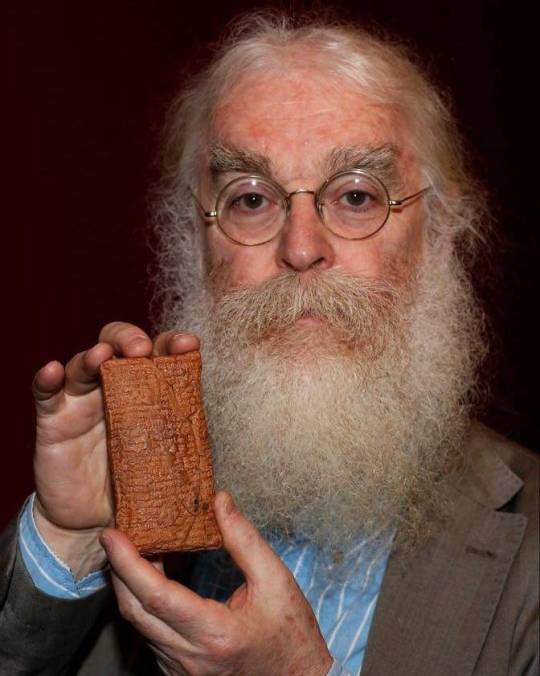
Dr Irving Finkel holding a 3770-year-old tablet, that tells the story of the god Enki speaking to the Sumerian king Atram-Hasis (the Noah figure in earlier versions of the flood story) and giving him instructions on how to build an ark which is described as a round 220 ft diameter coracle
More: https://bio.link/museumofartifacts
151 notes
·
View notes
Text
The plan was to start watching The Sign by divvying up the series into two episodes per day until I could finish. Well…that plan went completely out the window and I ended up binge watching the entire thing in one go. So, as I try to gather my thoughts, I wanted to sort of get my feelings out there on what I thought was an incredible show before I finally unfilter the tags (as to avoid any outside influence on my opinion).
Let me preface this by saying that this is going to be an incredibly bias opinion given my cultural upbringing and background (I'm half-Thai and I've spent almost half of my life living in Thailand), so please take that into account before reading any further. I metaphorically removed my western-lensed glasses while watching this series and preferred to watch as a Thai viewer, which probably made the more confusing or difficult parts of the show a lot easier to swallow. So, yes, I will admit that the show was not perfect by any means, but I was able to overlook a lot of its shortcomings given the parts that had been done so well and what this series could mean for Thai QL media going forward.
My goddess, where do I even start…
I'm a sucker for the reincarnated/fated lovers trope, so the show had me before it even started. What I absolutely loved the most about the romance and the A+ chemistry was that it didn't dominate or singularly drive the story, which was refreshing to see. It gave room to explore the fantasy/mythological elements of the show, the investigatory plotlines (which we'll get to later), and the relationships of the characters surrounding the "main leads".
Episode 3, my beloved, was what solidified my trust in this series and served as the foundation for the personalized experience I curated in my continued viewing. First off (and a bit of a side note), seeing Yoshi show up as Sand just made my heart super happy. I've been following her off and on since 2018, and she was one of the only things I actually liked about หมอ มือ ใหม่… but I digress. Behind the main story (and maybe even because of it), this episode was, for all intents and purposes, a love letter to Thai culture and its religious mythology. Which, when you consider how much international draw a BL series can hold, is truly momentous. International viewers got to experience the Bang Fai Phayanak (the naga fireball festival) that occurs every Wan Ok Phansa (the last day of what is considered Buddhist Lent) and the significance it holds over Thai history and culture. Using this as the stepping stone to establish the importance of the series' reliance on naga folklore…brilliant! The episode was also the viewers' introduction to the Buddhist idea of the cyclical intermingling of karmic fates. How the implications of an interdependence on one fate more than the others would later define the relationship between Phaya, Tharn, and Chalothorn…genius! All of this!? In one episode…of a BL!? I was overwhelmed by a sense of cultural gratitude and pride, that I still can't quite shake. I think Saint knew exactly what he was doing when he chose to adapt this series and I love him even more for it.
Aside from the cultural dependency and relevance, the show delivered so much beyond that as well. The production quality sailed high above previous BL standards and, in turn, lent itself to beautiful visuals and cinematography.
The casting! Billy and Babe's chemistry was just so *chef's kiss*. I knew Billy would absolutely smash it in the role of Phaya, but I often forgot that this was Babe's first ever acting role. It was an undertaking, that you could tell, he did not take lightly. Heng!? Wow! What a performance! He's been a staple in every Idol Factory series thus far, but he really nailed the purely villainous role of Chalothorn. Gap as Yai? No notes. He was able to flesh out what could have been a very one-dimensional character. Tack and Poom as Khem and Thongtai were a welcome levity inbetween, what was otherwise, a more weighty plot.
If I had to address any gripes I had with the series, there were only two that really stood out:
1) I wish the moments/conversations between Tharn and Chalothorn that eventually led to Tharn's return hadn't happened off-screen. There was a lot left to be resolved that could have been explored in that instance. But using my own inference based on Tharn as a character, his relationship with Chalothorn, and the core of his personality, I could kind of piece together how that ending came to be.
2)The lesser intriguing elements of the investigation storylines were shaky, at best. (If you were looking for the show to have a firm western-influenced ACAB agenda, then I'm sorry to say you were setting yourself up for disappointment. As much as I selfishly wanted it to be, this series was never going to be that show, it's a Thai drama.) From a Thai perspective, it made sense that the "copaganda" aspect of the series focused on the incompetency and inefficiency of a police force where justice is often informed by wealth and greed. I got an idea of what the show's stance on the matter was supposed to be but the overall plot and its consistency got lost somewhere within the final execution.
Other than that, I was left feeling satisfyingly content with where the series landed and I will continue to highly recommend it. It's easily one on my top five favorite Thai BL dramas and just Thai dramas in general! And…
There is such a rich history of mythology and folklore left for the show to still sink its teeth into: the garuda of it all, the pre-existing feud between the naga and garuda and why that is… Aside from a few minor specificities that were missing from naga folklore (their exclusion didn't really detract from anything, but it could have served to benefit non-Thai viewers), all of that could be addressed in a second season. Which, at this point, seems pretty likely 🤞🏾🤞🏾🤞🏾 and would be HUGE in the BL world.
PLEASE, LET IT HAPPEN! 🙏🏾🙏🏾🙏🏾
#the sign#the sign the series#thai culture#thai mythology#thai bl#i've had a very productive unproductive 12 hrs#i need sleep#i need to catch up on work#i formally apologize to my followers who are about to be flooded with 'the sign' content#i'm excited to finally get to see all the fan creations and gifs#😊😊😊#koda watches bl
50 notes
·
View notes
Text
Every time I see someone twisting Hades abducting Persephone into something romantic and claiming it to be real myths, I want to recite the Homeric Hymn to Demeter like a monk reciting sutras to ward off spirits.
#homeric hymns#homeric hymn to demeter#abduction of persephone#greek mythology#watched the BOZ trailer and already see people flooding in saying how Hades is the good guy and not a villain#is kidnapping assaulting and forcing a goddess to marry you NOT a thing a villain do?#if you're mocking on Zeus for doing that on women then Hades isn't any better#don't even pull that “it's just one time it's better than many times”#ONE TIME ASSAULTING SOMEONE IS ONE TIME TOO MANY#sometimes i'm tired of arguing with people about this#so i just recite the homeric hymn like a prayer and hope some of the words get into their brain
31 notes
·
View notes
Text
more about blood of eden naming because i have sunk my teeth into it, especially on how they use the names of destroyed and mythical places.
the wings/cells
merv: also alexandria, antiókheia in margiana, marw al-shāhijān. located in iran. inhabited from c. 2000BCE, a holy site to zoroastrians, one-time capital of the islamic caliphate, razed to the ground in 1788/9.
ctesiphon: also tyspwn, ktesiphōn. located in iran iraq (sorry, my geography of this area begins with sumerian cities and ends with aššur). founded c.120BCE, capital of the parthian, sasanian empires. besieged in the battle of al-qādisiyyah in 637CE, became a ghost town afterward.
troia: troy, illios, wiluša. the one heinrich schliemann “““excavated”““. located in turkey. inhabited from c. 3600BCE, the troy, the one we all know, hektor, akhilleus, kassandra. the milawata letter. destroyed multiple times over the millennia, the last being in thee roman era.
lemuria: mythical lost continent beneath the indian ocean, proposed by philip sclater, later appropriated by occultists. identified with the lost continent of kumari kandam by some tamils, which is believed to be their ‘cradle of civilization’ where the population was solely tamils.
mu: also a mythical lost continent, name also used interchangeably for lemuria and atlantis, the product of the mind of augustis le plongeon.
further, we see we suffer use the following names for other military cells in chapter 27:
saaftinge, zoar, birmingham, maputo, taree, memphis, taksa, calakmul, valencia, opava, dundee
normal cities, to us. however, to the people of blood of eden, these are all mythical, lost places regardless of the reality of merv, tyspwn, and wiluša. they are at a remove of ten thousand years. they are in the space between the fall of roman troy and the re-discovery of it, though there can be no rediscovery, only stories. much like australian aboriginal stories stretch back before certain parts of australia were underwater, blood of eden preserves the names of places that have been obliterated by the nuclear bombs, by whatever john continued to do to earth to have it so completely covered by water except for canaan house.
‘the flood, you know? You can wash things clean. that’s all the end of earth was … making things clean’, says john, and that’s what he did. he re-enacted the story of atra-hasis, of utnapištim, but there was no one to speak through the reed wall to save humanity even though, through the ages, it is very likely that the story of john destroying the earth became their new flood myth, their ‘god decided the world was too populous and was going to destroy it, and we are the chosen people who managed to survive.’ the whole of earth is mu, is lemuria.
#nona the ninth spoilers#ntn spoilers#blood of eden#LOOK I HAVE A LOT OF THOUGHTS ABOUT WHAT BOE'S MYTHOLOGY MUST BE LIKE#also about how the greek flood myth might tie in because one of the survivors is named PYRRHA
419 notes
·
View notes
Text
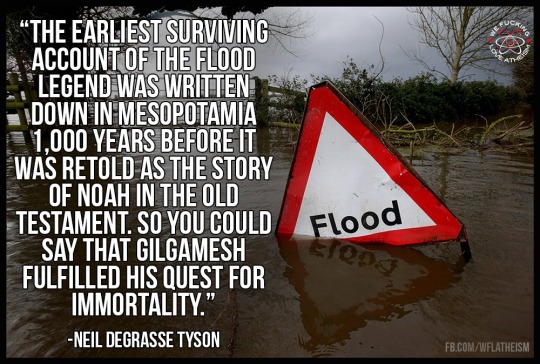
"The earliest surviving account of the flood legend was written down in Mesopotamia 1,000 years before it was retold as the story of Noah in the Old Testament. So, you could say Gilgamesh fulfilled his quest for immortality."
-- Neil deGrasse Tyson
#Neil deGrasse Tyson#Gilgamesh#Epic of Gilgamesh#Noah's Ark#Old Testament#stolen mythology#worldwide flood#noahic flood#noah's ark myth#religion#religion is a mental illness
63 notes
·
View notes
Text

A small frog who acted upon a large and greedy desire. Tiddalik's guzzling of all water was an issue to everyone, and thus everyone had to come together to deal with the result of his unchecked drink.
#BriefBestiary#bestiary#digital art#fantasy#folklore#legend#myth#mythology#dreamtime#dreaming#tiddalik#tiddalik the frog#australian legend#australian folklore#legendary frog#flood myth
16 notes
·
View notes
Text
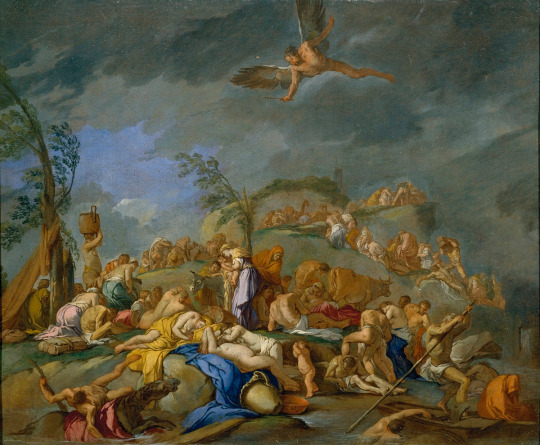
Deucalion’s Flood by Giulio Carpioni
#deucalion#flood#deluge#art#giulio carpioni#pyrrha#prometheus#zeus#greek mythology#ancient greece#ancient greek#angel#angels#gods#mankind#mythology#religion#ark#boat#chest#floods#classical antiquity#animals#humanity#mount parnassus#thessaly#mediterranean#europe#european#rebirth
19 notes
·
View notes
Text
Water/sea/storm/river deities say: fuck climate change and lets help the people in Rio Grande do Sul

#mythology#classical mythology#norse mythology#brazil#brasil#rs#rio grande do sul#RS#brazillian mythology#brazillian folklore#brazilian legend#finnish mythology#finnish folklore#mayan mythology#aztec mythology#greek mythology#roman mythology#japanese mythology#yoruba#ioruba#brazil floods#rio grande do sul floods
14 notes
·
View notes
Text





the Moirai: Lachesis, Clotho and Atropos (1x06)
#blood of zeus#boz#netflix series#greek mythology#the moirai#the fates#mine#probably going to flood your dashboards with this show#sorry not sorry#clotho is such a cutie!
20 notes
·
View notes
Text
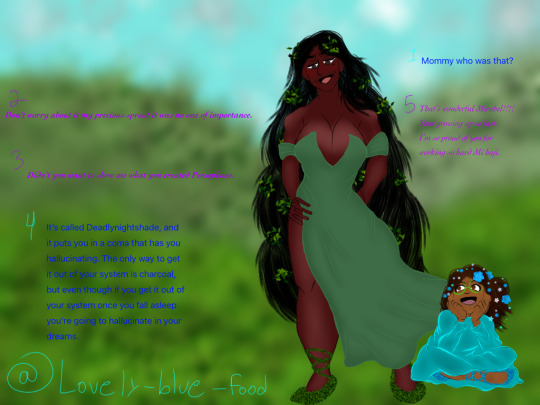
#encanto#encanto au#isabela madrigal#mirabel madrigal#greek gods#encanto isabela#encanto mirabel#demeter#persphone#Isabela is Demeter#Mirabel is Persephone#greek mythology#mama isa#ask me anything#send anons#my inbox is open#flood my inbox#artwork#original art#fan art#fanart#digital art#encanto fanart
14 notes
·
View notes